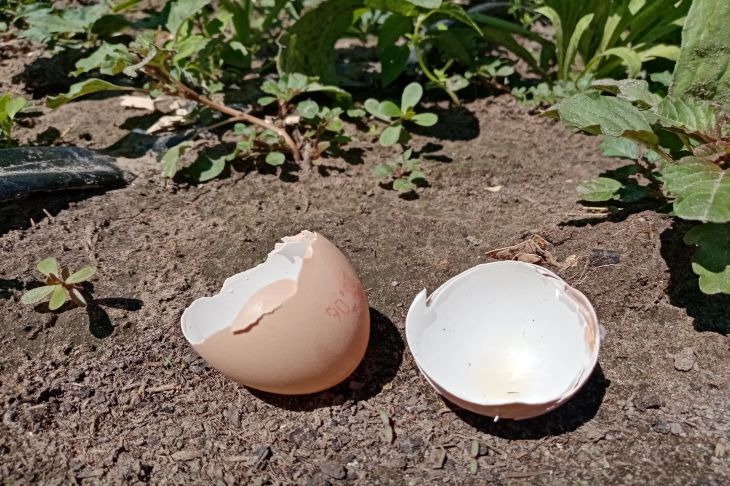No one doubts that eggshells in garden beds are beneficial. They improve the composition of the soil and protect against pests.
But if fertilizers are used incorrectly, the result can be the opposite.
Anastasia Kovrizhnykh, an expert of the online publication "BelNovosti" - a scientist, agronomist and landscape designer, told how to properly add eggshells to the beds.

Benefits of Fertilizer
This folk fertilizer has long proven itself.
The shell contains calcium, potassium, and phosphorus.
But don’t rush to sprinkle it under all fruit crops indiscriminately.
Consequences and risks
It is not the fertilizer itself that poses a threat, but its quantity.
As with any other substance, too much of these nutrients can have negative effects.
In this case, nothing good can be expected from excess calcium in the soil.
1. If we talk about a bed of tomatoes, then excess calcium contributes to the development of diseases in these plants.
Tomatoes tolerate a deficiency of this substance much better than an excess.
2. Potatoes do not react much better to the shell.
Excess calcium in the soil is one of the reasons for deformation and cracking of tubers.
3. Continuing to talk about root vegetables, one cannot fail to mention carrots and beets.
Due to the abundance of calcium, they become tough and tasteless.
4. You also need to be careful with calcium in the onion bed so as not to disrupt the development of this crop.
At the same time, you can safely use this fertilizer for cabbage, peppers and eggplants.
You can also avoid unpleasant consequences by grinding the shells into powder.

